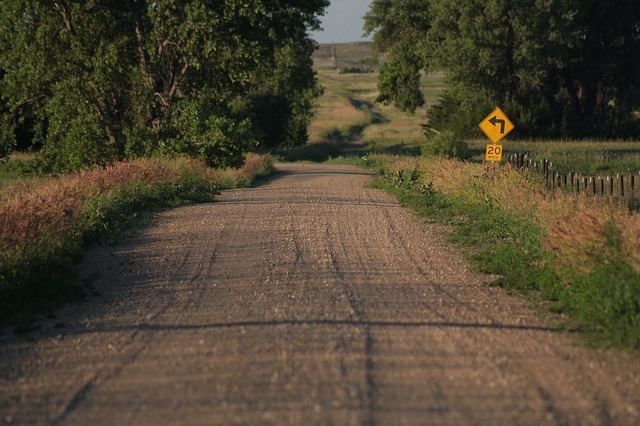State, Primary and Local Paved Roads
Summer maintenance of State, Primary, and Local Paved roads includes road construction repairs and projects, patching holes, and grading and mowing shoulders.

A good portion of the roads in our county are 30 to 50 years old, and as such were not built to withstand modern traffic and heavy loads. Our long-term goal is to rebuild these roads as funds become available.. Please remember that potholes become worse after Spring and Fall frosts and heavy Summer rains. We have crews out trying to keep up with the potholes, please be patient as there are many.
Gravel Roads
Summer Maintenance of gravel roads includes blading, brining, and adding clay where needed.
Smoothing out bumpy roads requires grading with a blade truck or a motor grader. Grading is usually done after rain because the road is soft enough for us to smooth it out. When dry, the clay becomes compacted and we are not able to cut down into the hard surface and any road material that is removed will not stick in the holes. Potholes in gravel roads can be graded out if minor, but the larger ones must have gravel put in them. We spend a good share of the Spring, Summer, and Fall hauling gravel from our pits to patch gravel roads.

In 2005 we spread 1,874,460 gallons of brine on gravel roads. This has two purposes, it helps to hold the surface together and reduces the dust. We get our brine from a DNR-approved well in our County and usually use all that is available to us. The Road Commission is not required to brine roads we do it as a service to the citizens. We generally do not brine where there are no homes and try to respond to calls on dusty roads, but with all the miles of gravel roads and the cost, it is hard to do as good a job as we would like to do. Most townships in the state of Michigan must provide brining service to residents at their own cost. On average the roads in these townships receive only two treatments per year. As one of the few remaining road commissions to still bear the entire cost and responsibility of this service for county residents, Crawford County brines roads an average of 3-5 times per year.
It is a hard job to get the right balance of clay, stone, and sand on a gravel road. Too little clay and the road quickly develops sand holes and soft spots, too much clay, and the road is slippery every time it rains. Heavily traveled roads are difficult to maintain. Generally, a gravel road holds up pretty well with up to 100 cars per day, more than that may cause problems.